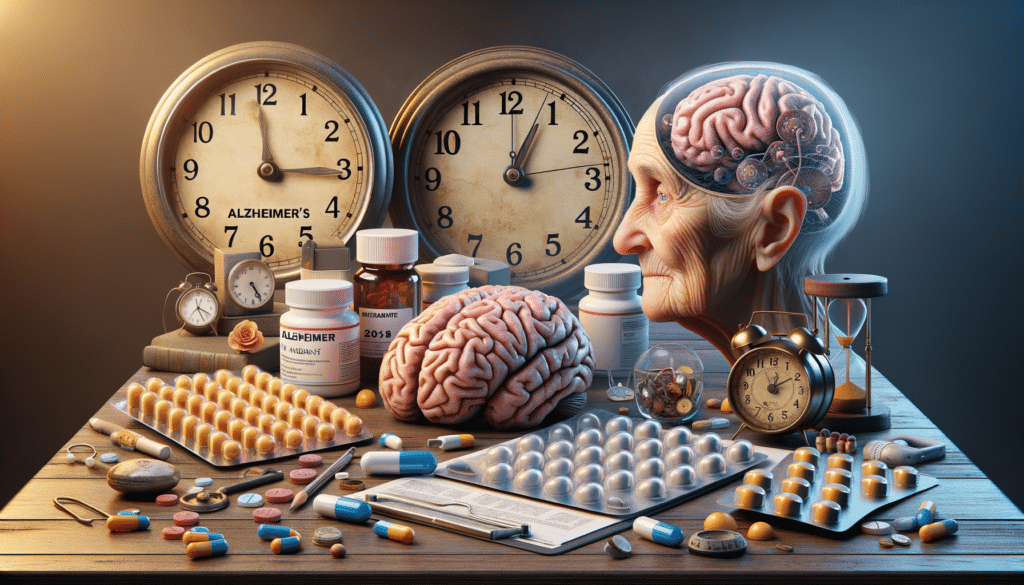Understanding Alzheimer’s Disease: An Overview
Alzheimer’s disease is a progressive neurological disorder that leads to memory loss, cognitive decline, and behavioral changes. It is the most common cause of dementia among older adults, affecting millions worldwide. Understanding the nature of Alzheimer’s is essential for identifying early signs and exploring effective treatments. The disease is characterized by the buildup of amyloid plaques and tau tangles in the brain, which disrupt neuron function and communication. As these abnormalities accumulate, they cause brain cells to die, leading to the symptoms commonly associated with Alzheimer’s.
One of the key challenges in managing Alzheimer’s is its gradual onset. Symptoms often develop slowly and worsen over time, making it difficult to pinpoint the exact moment when the disease begins. Researchers continue to explore the underlying mechanisms of Alzheimer’s, seeking to understand its causes and progression better. Although age is the most significant risk factor, genetic, environmental, and lifestyle factors also play a role. By gaining a comprehensive understanding of Alzheimer’s, we can improve early detection and develop more effective treatment strategies.
Recognizing the Early Signs of Alzheimer’s
Early detection of Alzheimer’s disease is crucial for managing its progression and improving the quality of life for those affected. Recognizing the initial signs can be challenging, as they often mimic normal aging processes. However, there are specific symptoms that may indicate the onset of Alzheimer’s:
- Memory Loss: Frequent forgetfulness, especially regarding recently learned information or important dates.
- Difficulty Planning or Solving Problems: Challenges in following familiar recipes or keeping track of monthly bills.
- Confusion with Time or Place: Losing track of dates, seasons, or the passage of time.
- Misplacing Items: Putting things in unusual places and being unable to retrace steps to find them.
- Changes in Mood and Personality: Increased anxiety, confusion, or suspicion, even in familiar environments.
By being aware of these signs, individuals and their families can seek medical evaluation sooner, which may lead to earlier intervention and better management of the disease.
Current Treatment Options for Alzheimer’s
While there is currently no cure for Alzheimer’s disease, various treatment options are available to manage symptoms and improve patient quality of life. These treatments can be broadly categorized into pharmacological and non-pharmacological approaches.
Pharmacological treatments primarily focus on addressing cognitive symptoms. Cholinesterase inhibitors, such as donepezil and rivastigmine, are commonly prescribed to help maintain neurotransmitter levels in the brain, potentially improving memory and cognitive function. Another medication, memantine, is used to regulate glutamate activity, which may help moderate symptoms in moderate to severe cases of Alzheimer’s.
Non-pharmacological treatments emphasize lifestyle changes and support systems. Cognitive stimulation therapies, such as memory exercises and mental activities, can help maintain cognitive abilities. Additionally, maintaining a healthy lifestyle, including regular physical activity, a balanced diet, and social engagement, has been shown to support brain health and may slow disease progression.
Innovative Research and Future Directions
The field of Alzheimer’s research is rapidly evolving, with scientists exploring novel approaches to understanding and treating the disease. Recent advances in imaging technologies have allowed for earlier and more accurate diagnosis, enabling targeted interventions at earlier stages.
Researchers are also investigating the potential of immunotherapy to target amyloid plaques and tau tangles, aiming to slow or halt disease progression. Gene therapy is another promising area, focusing on modifying genetic factors that contribute to Alzheimer’s risk.
Furthermore, lifestyle interventions, including diet and exercise, are being studied for their protective effects on brain health. The Mediterranean diet, rich in fruits, vegetables, and healthy fats, has shown promise in reducing Alzheimer’s risk. As research continues to advance, there is hope for more effective treatments and ultimately a cure for Alzheimer’s disease.
Supporting Loved Ones with Alzheimer’s
Caring for a loved one with Alzheimer’s can be challenging, but understanding and compassion can make a significant difference. Providing emotional support and creating a safe, structured environment are essential components of care.
Caregivers should focus on maintaining routines and simplifying tasks to reduce confusion and anxiety. Encouraging social interaction and engaging in meaningful activities can enhance the quality of life for individuals with Alzheimer’s.
It is also important for caregivers to seek support for themselves, whether through support groups, counseling, or respite care services. By taking care of their own well-being, caregivers can provide better care for their loved ones. With the right support and resources, individuals with Alzheimer’s and their families can navigate the challenges of the disease with dignity and hope.





